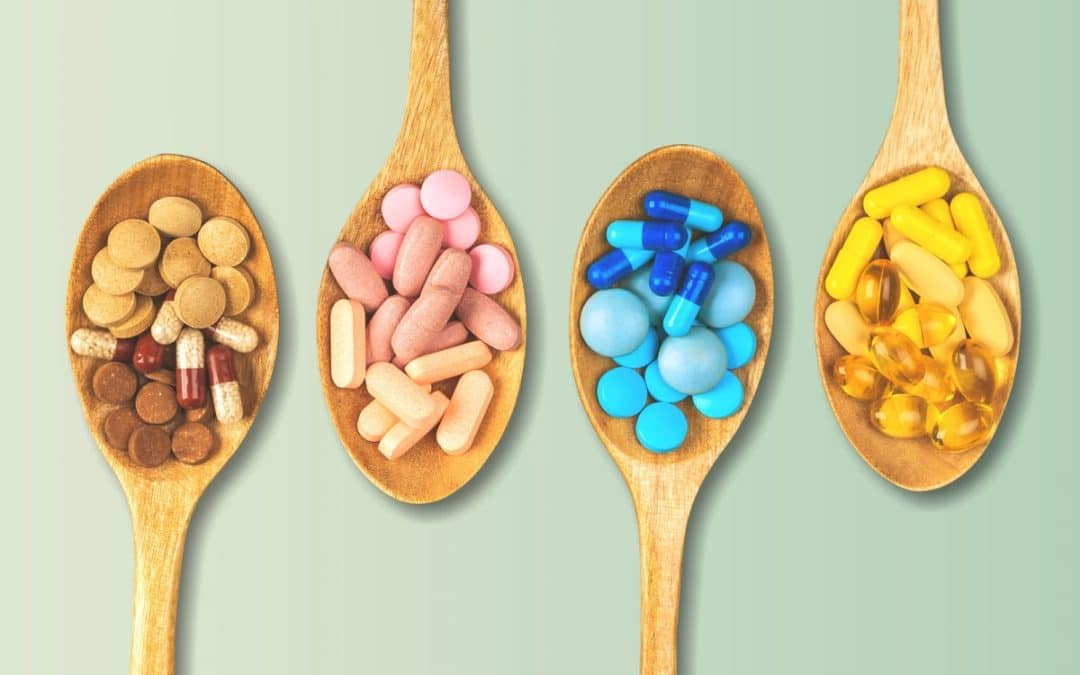A Multibillion Dollar Industry
If you have ever browsed the isle of vitamins and supplements at your grocery store or pharmacy, you probably realized how many choices there are to choose from. There are hundreds of different types of vitamins and supplements, and then each type has multiple brands. However, despite the difficulty of navigating through all the choices, 50% of American adults, and 70% of those over the age of 65, do take a vitamin or mineral supplement regularly. It is estimated that the vitamin and supplement industry brings in over 12 million dollars a year, but the health benefits of taking them daily is still in question.
The Research
Johns Hopkins research, in addition to recent studies they reviewed, found that multivitamins did not reduce risk for heart disease, cancer, or early death. They also found that taking vitamins or supplements did not result in a significant reduction in the risk of mental decline. Their research did uncover a trend in prior studies where high doses of Vitamin E and beta-carotene supplements actually lead to harmful side effects.
Harvard Health cites The Physicians’ Health Study II as the best study completed so far on the topic. It was the first and only large-scale randomized clinical trial to test a commonly taken multivitamin like the ones most people take, containing the daily requirements of 31 vitamins and minerals essential for good health. The results of the study were mixed, with modest reductions in cancer and cataracts, but no protective effect against cardiovascular disease or declining mental function.
While research has proven most vitamins to have very little health benefits, there are a couple of exceptions. Johns Hopkins states that folic acid supplements help to prevent neural tube defects in babies when women take it before and during early pregnancy. They cite the CDC when they recommend women get 400 micrograms of folic acid daily during their reproductive ages. Multivitamins that contain this as well as iron have been shown to be beneficial for women planning on having children.
The Verdict
“Pills are not a shortcut to better health and the prevention of chronic diseases,” says Larry Appel, M.D., director of the Johns Hopkins Welch Center for Prevention, Epidemiology and Clinical Research. Research is showing that if you follow a healthy diet, you can receive all the vitamins and minerals you need from food. However, if you feel you have a vitamin deficiency, it is best to consult with your doctor. Harvard Health recommends you always speak with your doctor before starting any new vitamin or supplement regimen. Another option is to see a dietitian. Dietitians can help you access your diet and discover where your vitamin deficiencies are stemming from. Then, they can help you create a balanced nutrition plan to help improve your overall health.
Harvard Health’s final verdict is that, while vitamins and supplements do not have sufficient research to support health benefits, there is the possibility that they could help close the nutrition gaps people may have. As long as you get the “okay” from your doctor and you monitor your Vitamin E and beta-carotene intake, vitamins are safe. Johns Hopkins, on the other hand, does not recommend taking vitamins or supplements. Instead, they encourage you to speak with your dietitian and focus on investing in nutrient packed foods rather than vitamins.
Overall, the choice is up to you and your doctor. To learn more about vitamins and supplements, click here!



